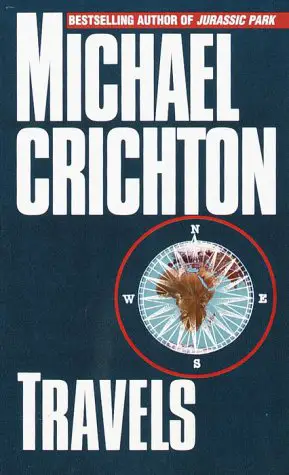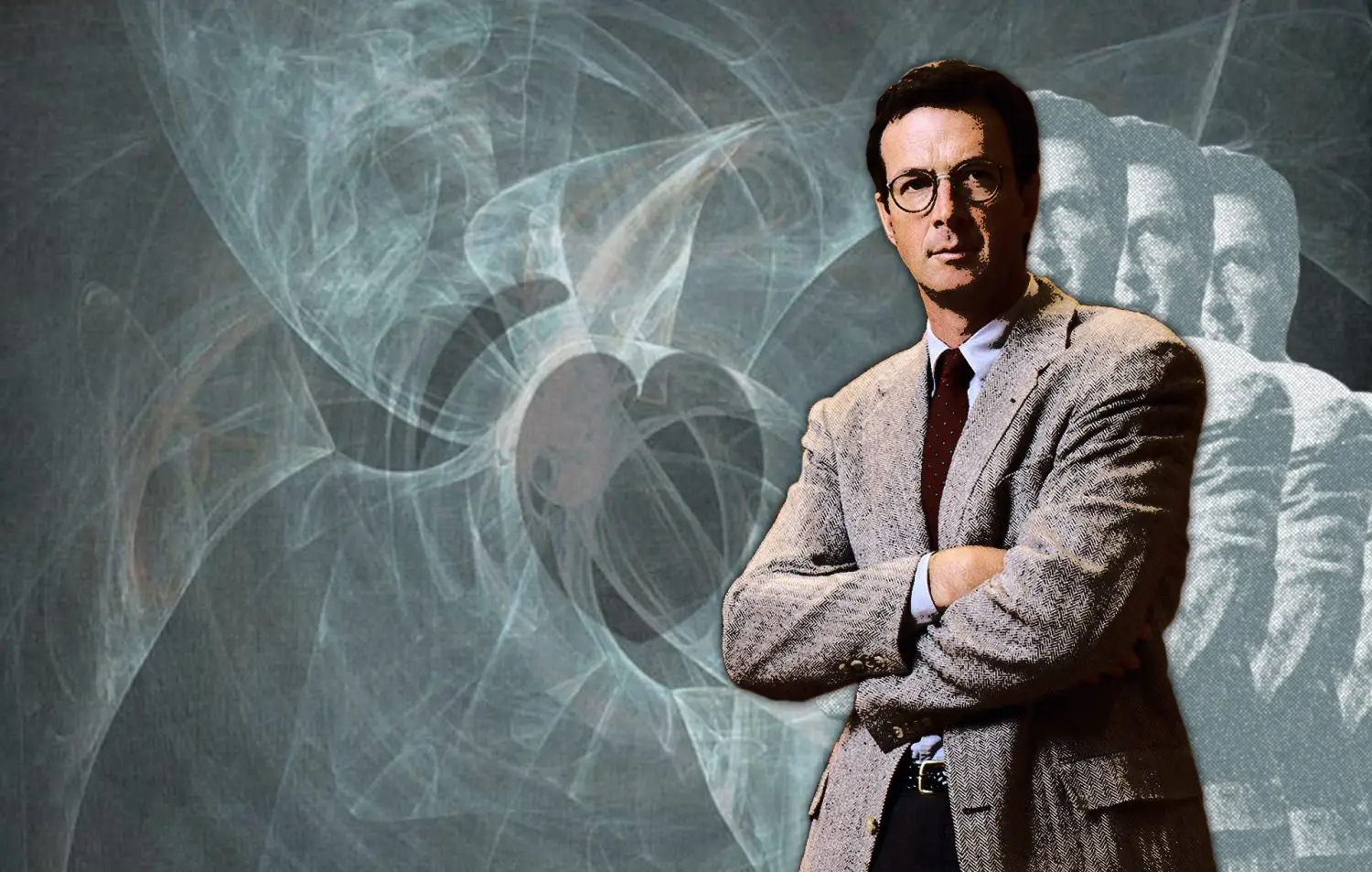A world without contradictions would be a very boring one indeed. If at all times everything was what it seemed, what mysteries would we have to explore?
With this in mind, submitted for your approval is one Michael Crichton—author, doctor, and New-Age weirdo.
Over the course of his 40-year career, author Michael Crichton penned some of the most groundbreaking science-based novels in popular fiction. In books like The Andromeda Strain, Congo, Sphere, and most notably Jurassic Park, he explored the complexities of the human relationship to technology, often with astounding degrees of expertise and prescience.
Concurrently, Crichton wrote a slew of novels that were informed by his experience as a Harvard-educated physician, such as A Case of Need, The Terminal Man, and Five Patients. These culminated in the creation of the wildly popular TV medical drama ER.

From all this it would be reasonable to assume that Crichton (who died in 2008) was a serious purveyor of hard science—and he was. But when you read his non-fiction book Travels, you learn that he was, in fact, something of a mystical oddball at the same time.
It is not easy to cut through a human head with a hacksaw.
– Michael Crichton, Travels
The Interior and Exterior Travels of Michael Crichton
In his introduction, Crichton explained that the travels described in his book include both external or geographic adventures (to Bangkok, Kilimanjaro, and New Guinea, for example) as well as interior or psychic explorations. While his travels through the material world make for valuable reading, for our purposes here I’m going to focus on his less tangible, more dubious journeys.
For example: his time spent with mediums who communicate with spirits of the dead. Or the telekinetic spoon bending parties. Or his purported ability to see auras. Or his experiences with astral projection. Or the trouble he had ridding himself of a pesky demon. Or the week he spent at a spiritual retreat where he discoursed with a cactus.
Pretty nutty stuff, right? I agree. But my intention here isn’t to debate whether these experiences are valid, but to explore the concept of openness.
A Mature Sense of Wonder
When we’re children, we’re open to believing just about anything. As we age, however, reality sets in and we begin to make what we consider to be clear distinctions between what is real or possible and what is imaginary or impossible. Practical concerns move to the forefront, and childish fantasies fall away. We lose our uninhibited sense of wonder, and we call this “growing up.”
As adults, we tend to have very fixed ideas of what is and isn’t possible, and anything that falls outside our presumed realm of possibility strikes us as ridiculous, if not outright lunacy. This, I propose, is to our detriment.
As adults, we tend to have very fixed ideas of what is and isn’t possible, and anything that falls outside our presumed realm of possibility strikes us as ridiculous…
Consider for a moment how many concepts we take for granted today that would have at one time been considered preposterous. Illness is caused by tiny things we can’t even see? Humans can fly to the moon? Sound and information can be transmitted enormous distances through thin air? Most of the universe is made up of some invisible substance?
Before the discovery of germs, rockets, the internet, and dark matter, only the most imaginative of people would have been open to the possibility that they could exist. Travel back in time 500 years with your cellphone and you’ll be burned as a witch.
Now let’s look at another idea that many of us take for granted—the existence of extraterrestrials. No one has ever seen an alien. We have no evidence of ETs. Yet more than half of all Americans assume that they’re out there based on little more than the fact that the universe is so big.
This example was actually used by Michael Crichton to highlight exactly the point I’m trying to make—that we’re rather arbitrary when it comes to which woo-woo ideas we’ll embrace and which we’ll reject. Aliens—cool! Auras—hippie nonsense!
Now, I’m not trying to say that you should believe in spoon bending or demons (I, for the record, believe in neither). What I am suggesting is that there is value in remaining open to ideas that are outside our generally accepted realm of possibility.
…we’re rather arbitrary when it comes to which woo-woo ideas we’ll embrace and which we’ll reject.
I bet folks were pretty skeptical when the first person to ride a horse said, “I’m going to catch that big animal, climb on its back, and get places faster.” When Marie Curie began espousing that seemingly solid metals could be emitting dangerous, invisible rays, I wouldn’t be surprised if more than a few people called her crazy. And Elon Musk has announced that he’s developing thread-like brain implants that will fuse humans with AI—a concept that would have been literally unimaginable just 100 years ago.
It’s a lot harder to be open to a far-fetched idea than it is to be closed to it. It’s a lot harder to go and visit some far-off, exotic place than it is to stay at home. But I’d argue that in both cases the benefits can outweigh the difficulties.
In an afterward to his travel book, Michael Crichton addressed his skeptical readers:
“I believe the experiences reported in this book are reproducible by anyone who wishes to try.
I went to Africa. You can go to Africa. You may have trouble arranging the time or the money, but everybody has trouble arranging something. I believe you can travel anywhere if you want to badly enough.
And I believe the same is true of inner travel. You don’t have to take my word about chakras or healing energy or auras. You can find about them for yourself if you want to. Don’t take my word for it.
Be as skeptical as you like.”
I suppose what I’m trying to say is, be open to Africa, be open to ideas and experiences that seem strange or impossible. Just be open.
You might discover that this world has a lot of great and wondrous things to offer, if only you’ll expose yourself to them.




